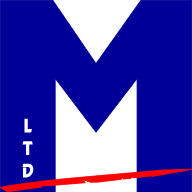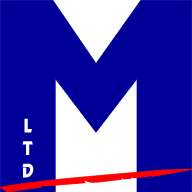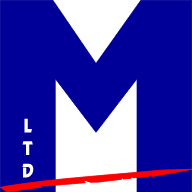Title Page
-
Drivers Name
-
Unit and Trailer ID
-
Location
-
Date
-
Auditors Name & Signature
-
The Company Auditor is to check that the driver has completed a circle check of the vehicle and trailer, then conduct an ADR audit noting any defects found that have not been previously recorded by the driver. If the driver is a new driver, new to the company (within 3 months) or is a new ADR driver, confirm that they understand McPherson company procedures and what is required of them under ADR Regulations.
Driver, Documents & Vehicle Check
-
Is vehicle cab interior in a suitable condition, ie. clean and tidy?
-
Is the trailer height indicator displaying the correct height for the trailer attached?
-
Request drivers licence, DQC card and ADR licence (if qualified), are they in date and do they have the correct vehicle categories?
-
Request driver's Training Passport. Check that the driver is trained on the current vehicle & trailer.
-
If defects are found by the auditor, did the driver raise a defect sheet for it.
Vehicle Inspection (Internal)
-
Is the vehicle mirrors clean and free from damage?
-
Is the front windscreen free from damage and/or obstructions?
-
Are the windscreen wipers and washers are operational?
-
Can the driver demonstrate the vehicles horn is operational?
-
Is the dashboard display free of warning lamps, (ABS, etc.)?
-
Can the driver demonstrate that the brakes are fully operational?
-
Can the driver demonstrate the vehicles steering is not defective?
Vehicle Inspection (External)
-
Is the vehicle free from signs of oil/fuel leaks?
-
If applicable is coupling security correct (dogclip attached, etc)?
-
Are all suzies connected (Brake lines, Electrical connections)?
-
Are all body/wing panels secure on the combination?
-
Is spray suppression (Mudflaps) present and attached securely?
-
Are wheel markers attached and do tyres have suitable tread (3mm minimum)?
-
Ask driver to put on hazards, press brake pedal and select reverse. Is reverse beeper and all lights (including number plate light) operational?
-
Is the load secure, doors/back box locked and sealed?
-
Are markers, reflectors, number plate and Hazchem plate clean and legible?
-
Details of any faults/discrepancies found.
-
Photographic details of faults/discrepancies found.
Helium CoRDe Requirement
-
Is the CoRDe key fob on the tractor unit key ring?
Health & Safety Compliance Audit
-
Does the driver have a hard hat with chin strap, bump cap, safety boots (not trainers), and hi vis vest?
-
Has the driver used 3 points of contact for access/egress?
Misc
-
Is there a VTG6 plate fitted inside the vehicle (and trailer if applicable)?
-
Is there a speed limiter sticker fitted inside the vehicle?
-
Is there a no smoking sign fitted inside the vehicle?
-
Is the tachograph calibration sticker present and in date?
-
Does the driver have a Dangerous Load Card & Diageo booklet?
-
Does the unit have a first aid kit?
Camera Audit
-
Does the unit have all cameras fitted (front, nearside, offside, above drivers window, and dog clip)?
-
Is the camera unit functioning (i.e. is the lights on) and does it have any warning lights showing? If no lights are on, ask driver to start the unit. If still no lights, report to Fleet for repair.
ADR Audit Requirements
-
Does the vehicle have a total of 12 Kgs of Dry Powder minimum? Minimum of 2 Kgs must be in the cab. NB: Minimum size permitted to be fitted to the chassis of the vehicle is 6 Kgs. Check dates and ensure that extinguisher is in pressure and that there is a safety pin fitted and that the pin is secured with an easy release seal.
-
Does the vehicle have 2 warning triangles? NB: Can have cones or flashing beacons as an alternative, but beacons must have own power supply - not from vehicle.
-
Does the vehicle have 2 eye wash bottles? A minimum of 900ml is required, in date and unopened.
-
Does the vehicle have 2 wheel chocks? Only 1 required if solo, 2 if coupled to a trailer.
-
Does the vehicle have an anti-static plastic shovel? NB: Mandatory from 1st July 2009
-
Does the vehicle have a drain seal? Check that it is in date and is not hard and breaking apart. NB: Mandatory from 1st July 2009
-
Does the vehicle have a plastic collecting container? NB: Mandatory from 1st July 2009
-
Does the driver have Instructions in Writing? From 1st July 2009 four page IIW is mandatory.
-
Does the driver have an intrinsically safe torch, goggles (not glasses), gloves (suitable for the goods being carried) and a hi vis vest/ jacket as per ADR Regulations?
-
If underload, is vehicle and trailer showing orange Kemlar plate and correct Hazchem Panels? NB: Orange panel should fasten in both up and down position. Flapping panel is a prohibition.
-
Does the vehicle (and tank if applicable) have an in date Certificate of Approval?
Load Documentation
-
If underload, does the driver have a W8 or Dangerous Goods Note for Export tanks?
-
If load falls under ADR Regulations, does the driver also have a Transport Document?
-
Photograph of Warrant, Transport Document, Seal, and Tank Number.
W8 Compliance Audit
-
Is the driver aware of his destination - Is the W8 correct?
-
Does the Tank/TLV number match the information on the W8?
-
Does the seal number match the information on the W8?
-
Is the W8 signed by the operator?
-
Does the driver understand what it means, by signing the W8?
-
Is the driver aware of the consequences, if the wrong tank is tipped at the wrong site?
-
Is the driver aware how to confirm that the trailer is empty and the tankers must have a seal on the rear doors?
-
If the load is going to a third party, ie. Chivas to Diageo, does the W8 have a completed EMCS Customs form with it?
Driver Risk Assessment
-
Is further action or training required for this driver?
-
Is this driver safe to continue or are they at risk?
-
Auditor's/ Driver's Comments
-
Auditors Name & Signature










